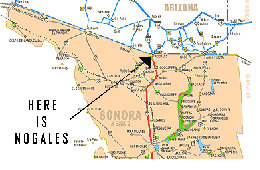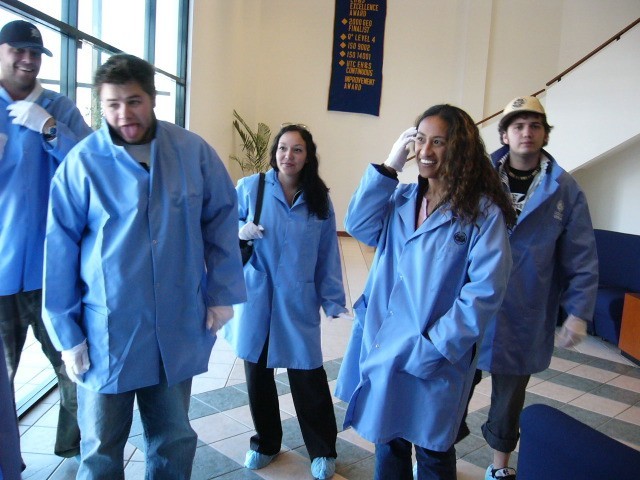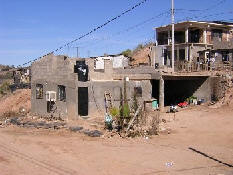|
I have been to Mexico numerous times in my life, but this was my first trip, as with many of my classmates, that did not revolve around the tourist areas and aspects of the country. This was my first experience with how the native people live their everyday lives and the difficulties that they experience. We went to Nogales, which is a Mexican border town just south of Arizona.
The thing that sticks out in my mind most was the trip to the Otis elevator factory. I was surprised at how nice the working conditions of the factory were and how well it was run. When inside the walls of the factory, it was as if I hadnít even left the United States. Despite being surrounded by broken down roads, houses made by hand, and cars that you cannot even believe are running; the factory was immaculate inside. Obviously the workers seemed happy, as these working conditions beat any others they could have.
(Here I am with some of my classmates in the Otis Elevator factory lobby.) This made me wonder what the salary was of these people working. I walked into the office of the manager of the factory and asked him how much these workers made in U.S. dollars a day. He did some quick calculating and figured it to be around $10 a day. This, to me, was astounding. As we had learned in class, goods and services in these border cities are relatively the same price as those in the U.S. are. I canít figure out how these people survive. If you have a family to support on $10 a day, it seems impossible. How can you possibly afford the basic necessities of life, like food and shelter, for you and your family on $10 a day? Let alone transportation to and from work, clothing and other things. This is an obvious indicator of why so many Mexicans attempt to migrate to the United States illegally. The visit to the factory also made me start thinking about what I have learned in my International finance class. Although labor for $10 a day for U.S. companies seems cheap, nearly every U.S. Company is banking on moving all of their production to China within the near future because it is even cheaper there. China is a communist country and as a result, they have more than 30 million people in prisons that they use as their labor force for free. Ten dollars a day for labor is cheap, but if you are a U.S. company whose competitor is producing in China and their labor is free, your company will not survive very long. Knowing this, and seeing how reliant upon these factories the city of Nogales is, it made me think about its future. In reality, the factories will not be there very much longer, so the people of Nogales, as well as Mexico as a Nation, need to figure out another way to survive. Listening to Kiko Trujillo, director of Border Links in Mexico, talk to us at the Border Links building in Nogales, I think that they realize this. He stated that the nation of Mexico needs to find some type of resource or service that is desirable by other nations and is unique to them. This is the only way that they can become a self-reliant country and be able to survive on their own.
(Here is the house that we ate lunch at.) We also ate lunch with a family while we were in Nogales. It was an unbelievable experience sitting down with the family that spoke no English in there home. The house itself was merely four walls and that was about it. The floors were dirt and the lifestyle was a complete contrast to that of the United States which was only miles away.
|
|
|
by Jay Gehrke |
|



